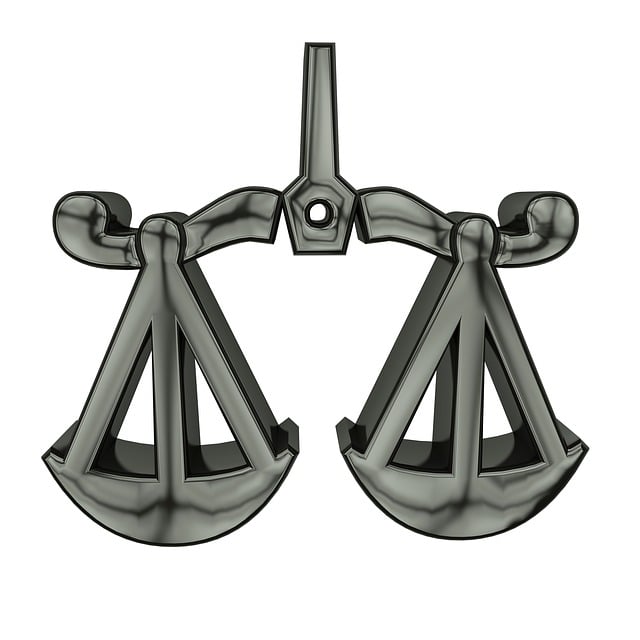RF Regulatory Agency investigations are crucial for ensuring compliance with RF standards, public safety, and protecting defendant rights during subsequent jury trials. These detailed inquiries involve rigorous equipment examinations, documentation reviews, and operational procedure analyses to uncover potential violations. Understanding this process is vital as it influences the outcome of trials, where clear communication of technical details and compelling legal arguments are key. Regulatory bodies act as a check and balance system, investigating claims, ensuring fair practices, and reviewing evidence to prevent abuse of power. With the rapid growth of wireless devices and 5G technology, these agencies prioritize safe RF emissions integration while balancing public health concerns with fostering innovation and maintaining jury trial integrity. Proactive protection of defendant rights involves strategic defenses, challenging evidence, and securing legal representation to navigate complex regulatory issues and handle high-stakes cases effectively.
“Uncover the intricacies of RF Regulatory Agency Investigations with our comprehensive guide. We explore the crucial role these bodies play in protecting defendant rights while ensuring fair practices within the radio frequency (RF) domain. From understanding common inquiry triggers to navigating the investigation process, this article delves into your rights and responsibilities.
Learn effective strategies to safeguard your interests during RF trials, emphasizing the importance of staying informed and proactive in defending your position.”
- Understanding RF Regulatory Agency Investigations: A Comprehensive Overview
- The Role of Regulatory Bodies in Protecting Defendant Rights
- Common Grounds for RF (Radio Frequency) Agency Inquiries
- Navigating the Investigation Process: Rights and Responsibilities
- Strategies to Safeguard Your Rights During RF Regulatory Agency Trials
Understanding RF Regulatory Agency Investigations: A Comprehensive Overview

RF Regulatory Agency Investigations play a pivotal role in ensuring compliance with radio frequency (RF) standards and protecting public safety. These investigations are comprehensive processes designed to uncover potential violations, from unauthorized RF emissions to unsafe product designs. When a company faces such an investigation, understanding the mechanisms is crucial for protecting defendant rights during trial.
The process involves rigorous examinations of equipment, documentation, and operational procedures. Investigators analyze RF signals, test devices, and interview personnel to gather evidence. This meticulous approach aims to achieve extraordinary results in terms of upholding regulatory adherence while ensuring a fair process for the respective business. In jury trials, clear communication of technical details is essential; legal teams must present arguments that both resonate with the jury and align with the evidence gathered during these investigations, ultimately shaping the outcome for all parties involved.
The Role of Regulatory Bodies in Protecting Defendant Rights

Regulatory bodies play a pivotal role in safeguarding the rights of defendants during legal proceedings, ensuring a fair and just trial. These agencies are tasked with maintaining the balance between enforcing laws and upholding the principles of a robust defense strategy. By investigating claims and allegations, they provide an essential check and balance system. This process is crucial in preventing any potential abuses of power by prosecutors or law enforcement, thereby protecting individuals from wrongful convictions.
In many cases, regulatory bodies offer a mechanism for reviewing evidence, questioning witnesses, and ensuring that the general criminal defense strategies of attorneys are not impeded. Their involvement can lead to the complete dismissal of all charges if they find insufficient evidence or procedural irregularities. This role is vital in fostering public trust in the legal system, demonstrating that defendant rights are a top priority, and providing a safeguard against arbitrary decisions that may affect an individual’s freedom.
Common Grounds for RF (Radio Frequency) Agency Inquiries

RF (Radio Frequency) Agency investigations often arise from various concerns related to radio frequency technologies and their impact on public safety and regulatory frameworks. Common grounds for these inquiries include allegations of non-compliance with emission standards, potential interference in critical communication systems, and the protection of consumer rights regarding electromagnetic compatibility. With the rapid proliferation of wireless devices and emerging technologies like 5G, ensuring the safe integration of RF emissions into our daily lives has become paramount.
Protecting defendant rights during trial is a crucial aspect that RF agencies consider when investigating potential violations. These investigations often involve complex technical assessments and legal proceedings, especially in cases where businesses might be accused of emitting harmful levels of radiation or failing to adhere to safety standards. Across the country, various regulatory bodies strive to balance public health concerns with fostering innovation in respective business sectors, ensuring a fair process for all involved while maintaining the integrity of jury trials.
Navigating the Investigation Process: Rights and Responsibilities

Navigating the investigation process is a complex task that requires a thorough understanding of rights and responsibilities. When an RF Regulatory Agency initiates an inquiry, individuals and entities face a critical juncture where their legal interests are at stake. It’s paramount to recognize that these investigations can be highly technical and legally intricate, especially in the realm of white-collar defense. Achieving extraordinary results often hinges on proactively protecting defendant rights during trial, ensuring a fair process, and upholding constitutional safeguards.
During this period, entities have the right to legal representation, notice of allegations, and an opportunity to respond. They are responsible for cooperating with investigators while safeguarding their interests. General criminal defense strategies may apply, focusing on challenging evidence, raising procedural issues, and negotiating resolutions where appropriate. Balancing these rights and responsibilities requires meticulous planning and a deep understanding of RF regulatory frameworks, ultimately aiming to mitigate potential penalties and ensure compliance moving forward.
Strategies to Safeguard Your Rights During RF Regulatory Agency Trials

When facing RF Regulatory Agency investigations, it’s paramount to understand your rights and employ strategies to safeguard them during trials. The first step is to assemble a robust legal team well-versed in wireless communications law. This team should consist of attorneys who can navigate complex regulatory issues and have experience handling high-stakes cases, whether for corporate and individual clients or general criminal defense matters.
Additionally, maintaining detailed records and documentation related to your operations can be invaluable. Preserve all communication logs, system records, and evidence that could challenge allegations. Collaborate actively with your legal counsel to develop a comprehensive defense strategy tailored to the specific charges. This proactive approach ensures you are prepared to present a strong case, protecting your rights and interests throughout the trial process.
RF Regulatory Agency Investigations play a critical role in balancing the need for technological innovation with the protection of defendant rights. By understanding the common grounds for inquiries, navigating the investigation process, and employing strategies to safeguard your rights, individuals and organizations can ensure fairness and due process during RF trials. Ultimately, these measures foster a robust and balanced regulatory environment, promoting both technological advancement and the protection of legitimate interests.






